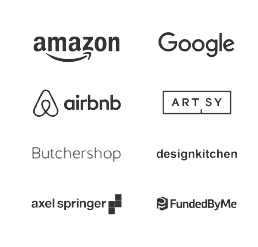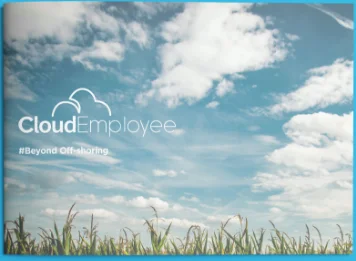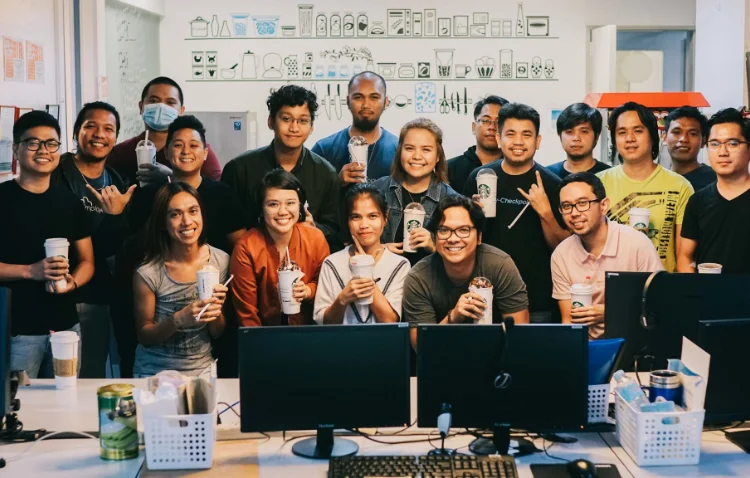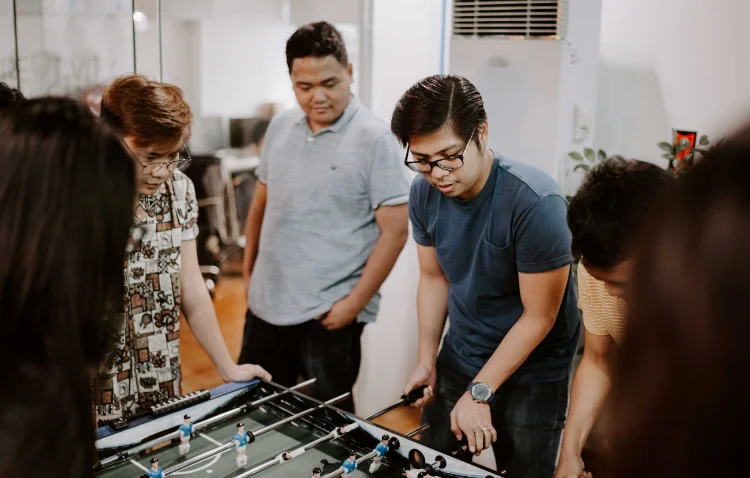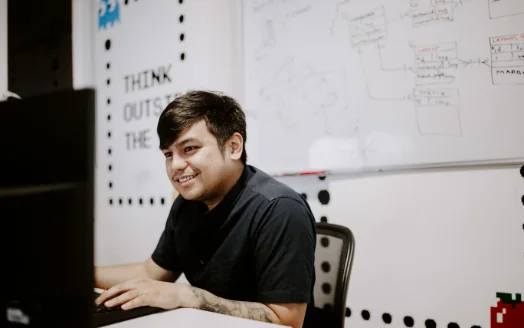To be fully competent, every programmer knows what skills they must master. Professional programmers know several programming languages well and are able to build software from scratch of high quality.
You will need more than just these skills to become a successful programmer. Simply knowing how to code makes you an average programmer.
Despite the fact that you will have to compete with other programmers your salary will probably be higher than average but still significantly below what it could have been.
It would also be hard to get into any of the FAANG companies (Facebook, Amazon, Apple, Netflix, Google) if you just meet minimum requirements for software developers.
To become a member of the elite club for software developers you must truly stand out.
Are you wondering what makes elite software engineers such as Kent Beck, Scott Hanselman, Robert C. Martin (also known as Uncle Bob), and Martin Fowler are so successful and so different from others in your company?


At first glance, you may think those people are geniuses and that you have to be born gifted to achieve their level of success. This is far from true.
The hard technical skills aren't the main skills of these people if you look at what they do and how they do it. It's not even the soft skills they possess.
What makes them so exceptional is something far more fundamental.
Language knowledge and best practices don't matter all that much. It makes way more sense to develop meta-skills knowing those exceptional soft engineers.
As a general term for personal qualities such as habits, routines, self-awareness, and general mindset, meta-skills refer to components of your personality you can consciously cultivate.
The purpose of this article is to show you a range of meta-skills that when incorporated into your daily routine will help you to become a programmer who really stands out.
It will enable you to master whatever you want more quickly than your peers. As a result, your competition will be significantly reduced.
Companies will be eager to hire you and everyone will be willing to pay you well. You will find your job easier, more enjoyable, and something from which you can switch off when it's time.
Work-life balance will become easier for you with better compartmentalization.
Developing a productive habit and breaking down a negative one is the most fundamental meta-skill we will learn.
There will be other important meta-skills you will acquire afterward and if you apply them your career will greatly improve.
The flow state, in which you are deeply focused on the tasks at hand will be taught to you so that you can stay productive for a long time.
After learning various mindset tips and routines you will become a true master of your craft by developing tricks and habits that are easy to master.

Programming requires hard work. In order to remain relevant as a programmer, you must stay on top of new developments because technology constantly evolves.
Programming languages that are used today may become obsolete soon. You will quickly burn out If you force yourself to learn every new programming language you need for your job.
Effective learning habits will enable you to evolve continually too.
The company will also assist you with learning any other technology that remains relevant and popular.
In the same way, if you want to truly stand out in the programming world you have to cultivate discipline.
You can actually learn to develop it much more easily than you think if you follow the right tips. Let's look at some strategies.
As soon as you master these habits, learning anything will be easy. You will be more efficient at work as well. Additionally, you will gain greater self-awareness from this.
Then, let's discuss what makes expert-level programming skills so hard to master and what meta-skills you can gain to make it easier. Let's start 🚀🚀🚀
The importance of hard work in mastering programming skills
The programming language is difficult to learn. Everybody would have been able to accomplish it if it was easy.
Despite their high demand, only a relatively small percentage of the overall population becomes software developers.
Programmers are well paid because programming is hard. You will usually get paid more in a free market economy if there is a need for what you do if you are capable of doing it and if you are hard to replace.
Those who are skilled in coding are hard to replace because there are not many people who can do so.
If you're also good at your job then you can pretty much earn a lot of money.

There is no need to earn a lot of degrees to become a programmer. A programmer can be successful without any of these attributes.
Self-taught software developers are common in the industry. IT is one of the least bureaucratic industries. Employers are unlikely to care what degrees you have.
If you can code, that will often be the only thing they care about.
While it is possible to learn the entire set of skills just using a computer connected to the internet, learning them is not easy.
You can find most of the information you need online. However, mastering those skills still requires effort.
There are a lot of things you need to remember. Beginners may feel overwhelmed by so many details. These are just a few.
Learning different programming principles and best practices will also be essential to your career growth.
You can get away with solving a problem any way you want as a junior developer.
If you do not understand or follow design patterns, naming conventions, SOLID, KISS, DRY, and other principles of clean code you will never reach a more senior level.
You must learn even more in order to become an exceptional developer. You must do more than just learn. It takes practice.
Make sure you practice so much you become a real coder.
But as every developer knows, you don’t learn things only once and then just continue applying them. Technologies evolve. Programming languages get updated.
With those updates, new best practices become adopted.
Because of this, software developers are in for a lifelong learning experience. You cannot escape it. It isn't possible to avoid learning new things and practicing them.
Otherwise, you will soon find yourself no longer competitive.
Time and focus are required to learn how to program and apply this knowledge to solving actual problems.
It tries to take your time and focus away from other, more pleasant, easier activities.
As a result, programming is very challenging especially if you want to become a truly exceptional programmer. Perhaps you are an IT genius and programming is your only dream job.
Coding maybe your passion. In an era where social media, video games, and streaming services are all freely accessible it is very difficult to force yourself to practice programming.
When there is a gaming console staring right at you, it's hard to even begin something as mentally challenging as programming.
There is an alternative. You can use habits to make it easier.
Making hard work easier begins with habits
In spite of the fact that we think of ourselves as conscious creatures, the majority of what we do is subconscious.
We do most of our daily tasks on automatic pilot. Those are habits.
I'm sure you can recall a time when you drove somewhere but just couldn't remember the details.
You may have even needed to return home to ensure that you'd locked the door, only to find out that you had.
It is typical for routine actions that we take every day to become actions we are not consciously aware of doing.
Conscious thinking takes a lot of energy which is why habitual actions become subconscious.
In accordance with established neuroscience and evolutionary biology our brain evolved to use this energy as efficiently as possible with the aim of surviving.
We use large amounts of energy to make conscious decisions. We tend to automate as much as we can which is why our brain tries to do so.
Despite accounting for less than 2% of total body weight the brain consumes 25% of the body's total energy.
This figure represents the average person's energy consumption. A person who spends a lot of time thinking hard needs even more energy.
There was a sudden end to the World Chess Tournament of 1984. The organizers were concerned about the health of Anatoly Karpov, one of the main contenders from Russia who has lost 10 kg (22 lbs).

We had dozens of chess matches in an extremely short period of time, which accounted for all of this.
The study provided solid proof that heavy thinking uses so much energy that it burns calories and can even force the body to use stored energy reserves.
A programmer is like a chess player in a way. We need to think hard because of the nature of our work.
It's therefore reasonable to assume that we programmers use a lot of energy.
Evolutionary biology states that our bodies try to conserve as much energy as possible. The environment in which we live today is not one where surplus food exists.
Food was scarce when cavemen lived in caves so they did all they could to conserve energy.
There are lots of reasons why it is so easy to gain weight but so difficult to lose it. It is simply the fat layer that stores energy.
In spite of knowing where our next meal is coming from, our body does not. Our instincts still respond to the harsh reality of the stone age.
Also, our brains follow the same principles. It takes a lot of energy to think consciously as the incident at the chess tournament shows.
This is why we are programmed from the very beginning to do as little conscious thinking as possible.
You may have found yourself in a situation when you needed to learn something but had difficulty getting started.
Once the learning process had been brute-forced for a while the activity became easier. The first few times we did a task, it was energy-consuming.
However, once it's been done a few times, it just becomes a habit. The instinct to preserve energy kicks in at this point.
As a child, did you hate brushing your teeth? You may have gotten used to it over time. It doesn't bother you anymore. You aren't looking for an excuse to do it. It just happens.
A similar approach can be applied to learning programming skills. Routines can be created.
As you begin, you'll have to use your willpower and force yourself to practice coding instead of scrolling through your social media feeds.
After a few weeks, you'll be able to do it automatically every day.
This is also true for individuals who have already established a successful career in software development.
When your probation period is over you may get complacent. In the long run, you may develop a habit of doing just enough to avoid being fired but not enough to become a great software developer that everyone wants to hire.
Now that you know how habits work, you can take advantage of them. Routines can lead to a person for whom complacency is virtually impossible.
Habits physically change the structure of your brain, according to neuroscientists.
Knowing how it happens will enable you to eliminate all the bad habits and build the good ones that will eventually make you a much more productive and focused programmer.
Programmers are analytically minded individuals. Having a strong understanding of how something works makes us better programmers.
You will be able to start applying the right habits in your own career much easier if you know how habits are formed on a biological level.
A scientific understanding of habit formation
We still don't know a lot about the human brain. However, habits are well understood owing to centuries of research.
All neuroscientists who are reputable agree on the general principles.
You will be familiar with neural networks if you have worked with machine learning.
A neural network used for machine learning is nothing more than a highly simplified mathematical model of how real neural networks work in the brain.
A complex network of neurons connects the brain. Those networks send signals throughout the brain.
The neural pathway is the path that the signal takes in the network.
A new action doesn't have a well-developed neural pathway because we haven't done it before. Therefore, learning new things is hard.
It is only possible for the brain in this case to re-use some neural pathways that are vaguely relevant to what we are trying to accomplish.
Even though we will be able to complete the action, our performance will be poor, and we will consume a lot of energy.
In order to learn something new, a person goes through four stages of the competence described by psychologists. The stages are as follows:
- Conscious competence. In this situation, the programmer can use the technology well but must apply conscious focus every time he or she utilizes it.
- Unconscious competence. It occurs when a programmer has mastered a particular technology to the point that it can be applied automatically.
- Unconscious incompetence. Usually, a programmer realizes what gaps he or she has in the knowledge of a particular technology after starting to learn it.
- Conscious incompetence. Programmers don't fully appreciate how difficult technology is until they've started learning it, so they can't appreciate how difficult it actually is.
When did you first use a computer keyboard? How about the first time you drove a car? Despite following the directions, you took a long time to type or to drive the first 20 yards.
Our neural pathways associated with physical actions become stronger when we repeat them.
They become a new highway in our brain. As a result, neurons become easier to fire.
As a result, you can type on a computer or drive a car without even thinking about it over time.
This is how the energy-reserving brain functions since establishing new pathways are challenging.
Psychiatrist and author Daniel J. Siegel said, "Where attention goes, neural firing flows, and neural connections grow.".

This principle does not apply only to the acquisition of new skills. A new routine is also affected by this principle.
Your body's neural pathways are not just responsible for physical movement. Neurons are also responsible for transmitting information through signals.
Taking care of your teeth, for example, requires little skill. It’s a series of very simple moves that even a little kid can do without any effort.
This process will probably be unnecessary, boring, and time-consuming for the kid.
The act of brushing teeth becomes routine over time. As a result of the cues, you would have developed a neural pathway.
Getting up from your bed may be interpreted as a cue to brushing your teeth. It may also be an alarm clock.
Whenever you wake up in the morning, you simply go to the bathroom and brush your teeth. It doesn't even cross your mind.
What movements did you make last time when you brushed your teeth? Do you recall exactly what you did? This is because the action was entirely subconscious.
The biological basis for habit formation is now clear. Procrastination is perhaps the most destructive aspect of your programming career. Now you'll be able to deal with it.
What makes us procrastinate?

Procrastination is a constant problem for software developers. When you're surrounded by so many distractions, you'll find it difficult to resist.
Procrastination is your worst enemy if you want to be an exceptional programmer.
Your procrastination takes away from time that could have been spent developing your professional skills.
Your professional development is put on hold the longer you procrastinate.
The situation could be even worse. When you are trying to complete an urgent task, procrastination can delay you.
You may even be fired for this task if it was a mission-critical one that had to be completed by a strict deadline.
Procrastination is even unpleasant. There is absolutely no benefit to it. How many times have you been supposed to complete a task but instead kept browsing the web mindlessly?
In the past, I have felt guilty about not completing my tasks while browsing the web didn't give me any real pleasure either.
What are the benefits of procrastination if there are none and it harms your career advancement at the same time?
Brains are energy-guzzling organs that prefer to preserve as much energy as possible. That's why procrastination is so common.
The brain will try to avoid tasks that it perceives as too difficult.
Because of this, even when you fully comprehend the benefits of doing the work there will still be a nagging sense of wanting to do something else instead.

If you are feeling depressed you will want to do something much less challenging and more enjoyable.
Because of this, when you procrastinate you usually do something mindless such as continuously scrolling your social media feed or binge-watching videos on YouTube.
Self-sabotage is an act of self-destruction. You don't perceive it as such because your subconscious mind doesn't see it that way.
In its view, it's trying to prevent you from potentially using up too many resources.
Don't forget that your subconscious mind still lives in the stone age when you couldn't be guaranteed a meal tomorrow.
It is especially easy for your brain to perceive any task that you have never done before as being too big and too difficult.
There is no comparable task yet with which it can compare the difficulty of this one. The system will consider it "too big" by default.
Anyone can fall into the procrastination trap, but it's especially problematic for individuals engaged in intellectually challenging work such as software developers.
You will regularly encounter new challenges as a software developer. It can be challenging to learn new technologies sometimes.
Occasionally, you will have to troubleshoot a system that you are unfamiliar with.
It's human nature to perceive a task as too challenging if you can't estimate how challenging it will be. That can't be avoided. Our brains are biologically built for this.
The situation is probably familiar to you. Are you recalling the inner resistance you felt when learning a new programming language or technology?
What about when you had to develop a feature or examine a bug in a system you did not know well? Are you putting it off until the last minute?
As you go along, it doesn't seem as bad and you are fairly happy to keep going.
However, just because procrastination is sometimes inevitable doesn't mean that you cannot overcome this urge.
This is where habits come into play. You must overcome this habit. It's harder to resist procrastinating the more you allow yourself to give in to it.
It is also possible to develop a habit of getting the work done despite the urge to procrastinate.
It just requires frequent practice. As you practice, you will become more able to resist procrastination.
The next step is to discuss productivity habits in more detail.
Coding can be as easy as brushing your teeth
It will be second nature to you to brush your teeth if you practice good oral hygiene.
But also making your technical skills second nature is necessary to be an extraordinary software developer.
In previous posts, you learned how neural pathways form and why software developers are so prone to procrastination.
In addition, programming cannot be compared to brushing your teeth. That would be impossible.
You will have to overcome some serious obstacles once you decide to become a master of software development. This is an unavoidable situation. You must be persistent.
Thankfully, this only needs to be done at the beginning. When you have formed and solidified new neural pathways, your work will become easier.
If a task is similar to something you've done many times before, your subconscious mind knows exactly how difficult it will be and you won't feel the need to procrastinate.
It's possible that you'll still feel the urge but it won't be so strong that you won't be able to control it.
We can use the example of brushing our teeth as an analogy here. Most likely, you don't brush your teeth because you're concerned about your oral hygiene.
The reason you brush your teeth is that, over the years, you have accumulated many cues that make you do it.
Good working habits can be built using the same principles. Over time, your subconscious will begin associating certain cues with work if you sense certain cues in your environment. Your work will be more focused as a result.
Everything is possible. Every person will experience success in different ways. But the fundamental principles are universal.
The legendary senior software developer at Microsoft, Scott Hanselman, seems to be a genius in the area of productivity. A blogger. A videographer.
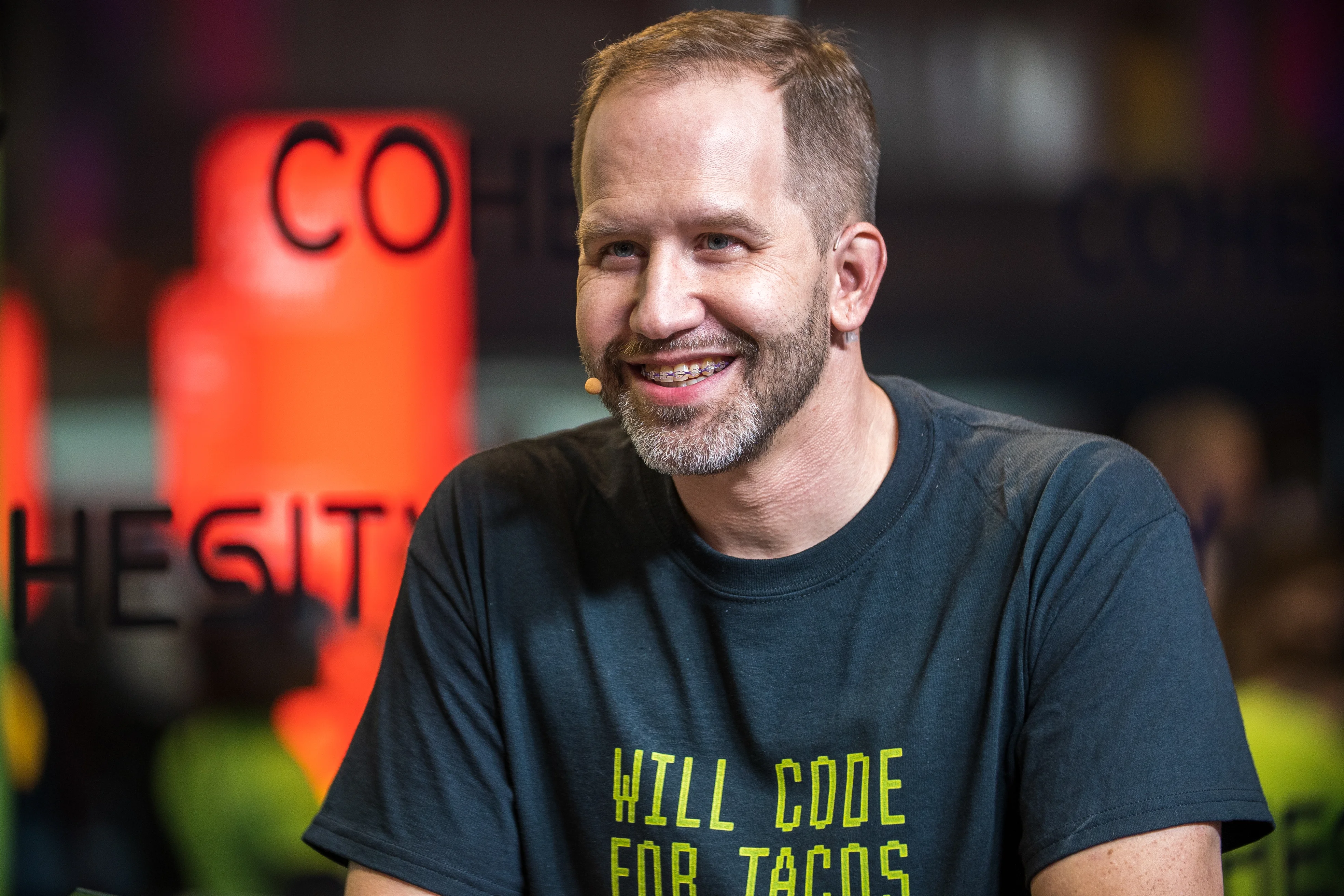
He conducts interviews. Traveled the world and gave presentations. His courses on programming are published. These activities are in addition to his work at Microsoft. Besides that, he has a family.
His abilities aren't really that impressive. His talk on productivity hacks is a popular topic.
Those recordings make it sound like he is just an absolute master when it comes to designing routines. They become solid habits with him.
His expertise in software development is complemented by his mastery of meta-skills. His reputation as a successful software developer is based on his meta-skills, not the other way around.
The author emphasizes the importance of setting up a distraction-free work environment and making it a habit to focus on achieving specific goals only.
In addition, he is really good at keeping his personal life separate from his professional work. He also always leaves time for recharging.
In the evenings, on the weekends, or during the holidays, he completely turns off his devices when he is around his family.
Scott Hanselman demonstrates an excellent habit-forming technique here. Creating strong associative cues to help you focus and be more productive can help you separate your work from other aspects of your life.
By separating work from other aspects of your life, you can do it either through time or space. For instance:
- Work in a dedicated workroom.
- Your working computer should be used only for work.
- Your work should always begin at the same time each day.
- Create a special ringtone to indicate the beginning of the workday.
The choice is yours. In the next section, we'll look more closely at why these routines work so you can design your own routine for improved productivity.
For now, just remember to be consistent. Your brain will start to associate these rituals with work if you carry on performing them while you work.
Gradually you will get to the point where you don't even think about it when a cue makes you sit down and get to work.
Initially, the process will probably be challenging if you've never consciously worked on your productivity. Almost everyone has this problem.
Some days they are capable of focusing, while on other days they accomplish little to nothing.
If you don't feel like doing the work, you need to force yourself to do it. Associating cues with it will make it easier.
Perhaps you can do it at the same time every day. It could always happen at the same place. It could be on a computer you use only for work. Possibly, it's a mixture of both.
Repetition creates subconscious habits. Using such cues, you can build the habit of jumping into productive activities at the first sign of inspiration.
Then you keep repeating the same action until it becomes automatic.
You will become more proficient at the tasks over time. You will be able to learn how to enjoy studying new material if you regularly engage in it.
Writing code regularly will enable you to become second nature with many of the programming techniques.
You will know where to look when you work with similar systems once you have found and fixed bugs repeatedly. You won't consider those tasks particularly difficult anymore.
In order to make coding a second nature, you must practice a lot. Nothing else will work. You must make it a habit. You must repeat it.
Successful programmers have the following habits
"I'm not a great programmer; I'm just a good programmer with great habits".
This famous quote from Kent Beck is frequently quoted by Martin Fowler, who is known as one of the foremost experts on software design and architecture.

What specific habits are required to become a great programmer? As a programmer, you need to work on the habits that apply to all fields, not just programming.
These are called "the habits of discipline.
However, discipline does not completely mean using your willpower to do difficult things even when you don't want to.
You can also achieve your goals through discipline by restructuring your surroundings and your routine in such a way that it is easy to do those things that will help you succeed.
These changes will make it easier for you to resist temptation.
As a programmer, reducing the cognitive load in your working environment is one of the best improvements you can make.
The best way to reduce cognitive load
By maintaining these habits, you will be able to focus on what matters most. You have to put in a lot of effort until you establish them.
Willpower is a finite resource (which is the same as consciously not wanting to do something that you should). As long as you don't replenish the energy it consumes, it remains finite.
Energy replenishment, on the other hand, usually takes a lot longer than energy depletion.
Most people are capable of conscious focused activity for only a few hours per day at most, which explains why they need eight hours of sleep on average.
You are most fatigued by the process of deciding to do the work during challenging cognitive work like software development.
Taking on the work is more complex than simply deciding to do it and getting started.
The process of choosing an activity to do instead of the task you are about to do involves conscious or semiconscious assessment of the pros and cons of it compared to other things you would rather do.
For this reason, it is exhausting. Decision fatigue or ego depletion is caused by making too many conscious decisions.
Roy Baumeister, a world-renowned social psychologist, first coined the term "ego depletion.". There has been extensive research on this topic since then.

Entrepreneurs who achieve success intuitively understand this concept. As an example, Steve Jobs always wore the same outfit.
His closet was filled with exact replicas of the same outfit. The ritual he used to minimize decision fatigue was just one of the best-known ones.
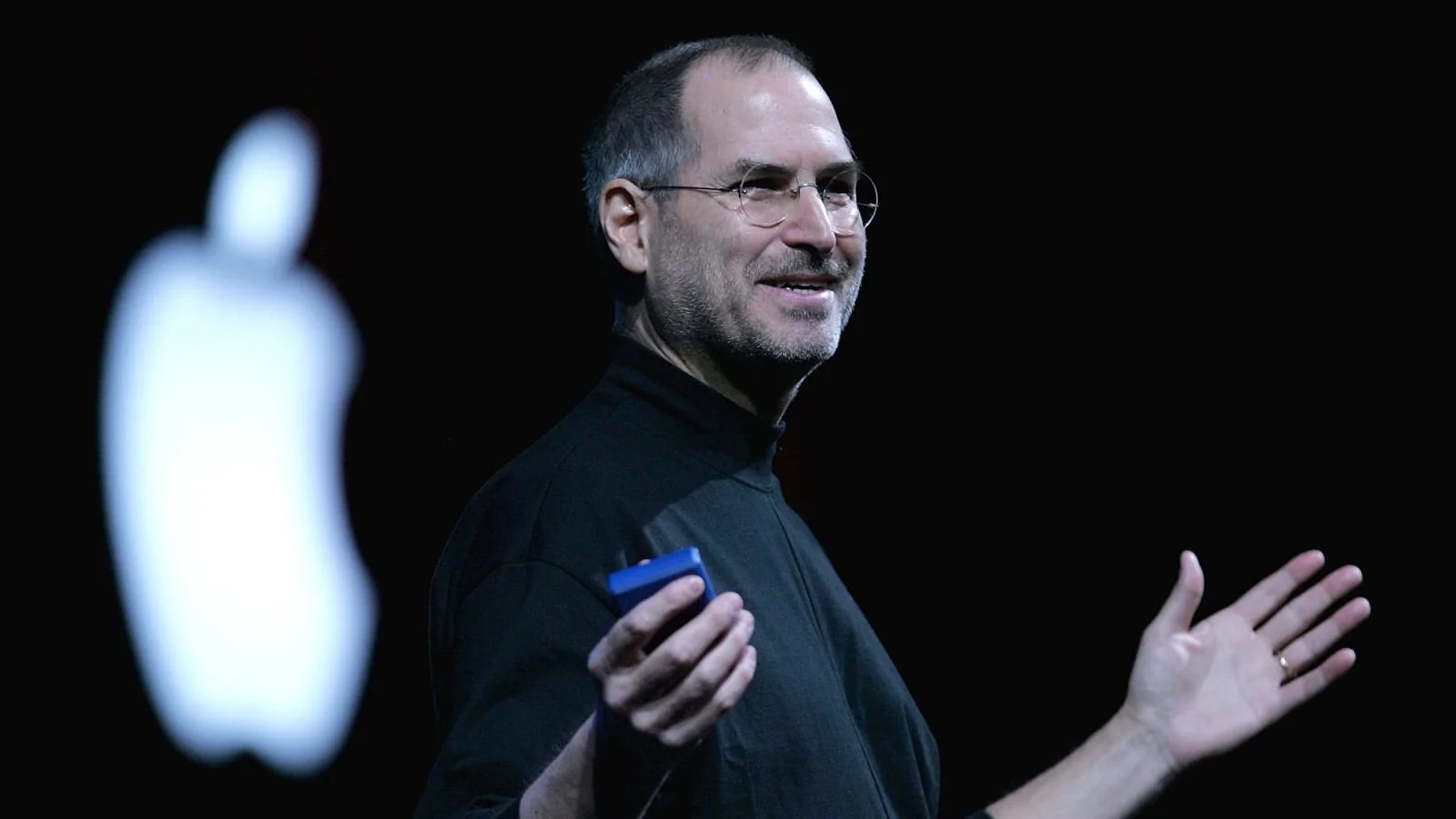
It was just one of several rituals he used. He was known for saying "no" to almost all ideas, and he delegated tasks aggressively.
In spite of how simple it seems, choosing what to wear can deplete some of your mental energy. Having to make so many small decisions like this drains your energy.
Managing the number of decisions you have to routinely make will give you the energy to make really difficult decisions, which he as Apple CEO faced on a daily basis.
In other words, you need to build a habit of doing focused work without thinking about more pleasant activities. In doing so, you must minimize your ego's drain.
Eliminating as many distracting cues as possible from your environment would be a good trick. It will help you form habits much more quickly.
Having a poster of your favorite game in the room where you need to work will probably make it difficult for you to concentrate on your work.
The worst is when there's a gaming console right next to the desk.
It will be hard for you to resist the temptation to scroll through your timeline when logged in to your profile on the computer you are trying to work on if you use social media a lot.
If you have any logins to entertainment resources on your work computer's browser, clear them. Remove all entertainment apps and games.
Place your phone in silent mode and keep it far away from you. If possible, keep it in a different room.
Buying more than one copy of the same outfit is part of the Steve Jobs mentality. It makes sense. It would be a bit much though for most people.
Therefore, the best way to improve your discipline is not to force yourself to do difficult things, but rather to rearrange your environment in a way that makes it easy for you to do them.
It won't take much willpower to stay focused if your environment promotes productivity. Keeping your environment clear of cognitive clutter will make you disciplined without having to force yourself to do so.
Establishing good coding habits
Aside from mastering the fundamentals of the discipline, you must also cultivate excellent programming habits.
It's not just about typing intuitively. Having a lot of experience typing a great deal of code over time will give you this skill.
Developing proper habits of doing software development is what you need to work on. Writing clean, well-maintained, bug-free code should be second nature to you.
Here are some timeless tips from Martin Fowler about developing good programming habits:
- Whenever you need to add a new feature to a program, and the program's code structure makes adding the feature difficult, first refactor the code so it can be easily added, then add the feature".
- You lose if you manage to get today's work done, but do it in a way that prevents you from doing tomorrow's work.
As a result of these practices, he is in a much better position than someone who has coded for an equivalent period of time but has never mastered it.
In a nutshell, those quotations are only a summary of why you should structure your code properly, not just write random statements.
There is a reason why SOLID principles, coding style conventions, and design patterns exist.
It is indeed possible to write code that solves any particular problem without following any of these best practices, but if the code ends up badly structured as a result, you will have a lot of problems in the future.
Technical debt refers to bad code exactly for this reason. Putting forward a solution to a specific problem without thinking about the best practices may save you a little bit of time right now.
However, this tiny amount of time saved in the short term will end up costing you much more in the long run when you have no option but to restructure the code.
The reason Martin Fowler says it's worth refactoring badly written code whenever you see it is for precisely this reason.
You'll be saving yourself a lot of hassle if you do a little extra now.
How can you implement specific best practices? These are numerous and you will not remember them all. In any case, it is not necessary to know them all immediately.
Best practices like SOLID, KISS, and DRY coding style conventions and design patterns can also be found in these guidelines. But covering them in detail is beyond the scope of our subject.
If you want to become proficient in applying best practices to software development, it's easiest to spend some time each week reading books and blogs written by well-respected software developers.
Make sure you take note of the key concepts from these books and blogs, then start implementing them. Your code will improve as you go along. It will become second nature to you.
Having an established routine, which is itself an eventual habit, will help you establish a consistent routine on a given day of the week.
In his blog and talks, Scott Hanselman regularly discusses this kind of productivity approach.
You need to know more than just the syntax of a coding language to be successful. A good software developer needs to know how to use this language well.
It's the best practices that guide this. Therefore, becoming a true master of your craft requires you to adopt those best practices as a habit.
The importance of soft skills
The mastery of software craftsmanship, however, is insufficient to make an exceptional software developer. Good soft skills are also necessary.
There are many interpersonal skills included here, including communication, leadership, sales ability, etc.
Then again, you are not a professional public speaker (although there is nothing stopping you from becoming one).
You're also not a salesperson (although we all sell stuff from time to time, just not usually by that name).
So perhaps you don't have to develop your soft skills to a point where you can compete with a professional politician in a political debate.
But you have to develop the following skills to at least a fairly good level if you want to succeed in your career or a successful career in general:
- Communication skills are as important as technical skills, regardless of how exceptional your skills may be. Even if you are the best coder in the company, you will not be promoted if no one wants to work with you. Your idea will not be implemented if it is objectively the best but you cannot convince others to adopt it.
- In almost every industry, a high-level professional role involves leadership. Senior developers don't only write code anymore. Today, they shape their teams' decisions. You can't become a senior software developer if you lack even the smallest ability to influence.
- As a coder, your salary does not just depend on your skill level. Despite what many people wish this is not how real life works. It also depends on your negotiation skills.
- A CV alone isn't sufficient to get a good job. It is probably true that only a small percentage of top-level jobs are obtained via standard applications. Your professional presentation is more likely to lead to a job offer. You may have impressed some directors with how you presented yourself at a recent conference. You may have impressed some hiring managers with your blog.
Developing soft skills is similar to mastering hard technical skills in that the approach is similar to making them your habits.
Spend some time learning them and then consciously make adjustments to your behavior and your speech based on your newly acquired knowledge.
After some time, even if you never quite become charismatic, you will at least become someone who is easy to work with and is capable of influencing others.
Because you can present your ideas well, your ideas will be implemented. Perhaps you'll receive a job offer out of nowhere because someone really liked what you said.
This is something I personally know about. I used to be very shy and introverted before. It was hard for me to communicate.
In my opinion, success in a career as a software developer should be entirely driven by technical merit.
My attitude kept me in a mid-level position until I changed. My career has improved dramatically since I started proactively developing my soft skills.
In addition to blogging and filming videos about coding, I also started a video lecture series.
As a result, I have received several job offers from good, reputable companies who discovered my blog or one of my lectures.
As well as improving my face-to-face interactions this has positively influenced my career.
A friend of mine who later obtained a top managerial position referred me to a position as a lead software engineer.
Even though you will quickly hit the limit without working on your soft skills, technical skills are extremely important for your programming career.
It is also imperative that you avoid forming and solidifying bad habits along with building good ones.
No matter how good your habits are, they are easily derailed.
Learn how to break bad habits that hinder your progress
A common misconception about habits is that they build only positive habits. Habits can be constructive as well as destructive.
Because of this, you must also constantly monitor for habits that might sabotage your progress, as well as deliberate work towards building the habits that will help you achieve your goals.
Positive habits are always on display, but negative habits are always hidden.
It's fine to ignore them because negative habits will form on their own. As a result, you must pay attention to your daily actions.
It is another aspect of negative habits that they take no effort. When you don't take conscious action to cultivate the person you want to be you'll fall into those habits by default.
All of us are familiar with negative habits like overeating, binge-drinking, and smoking. All of these bad habits can lead to health problems. Some can even lead to addiction.
However, there are also some habits that can derail your career that is less common and more socially acceptable.
One of them is procrastination, which we have already discussed. Building a habit like this doesn't require any effort on your part.
Occasionally, you will feel a temptation to procrastinate. When you succumb to it too many times, it will become ingrained in your mind and will become very difficult to break.
Code that ignores best practices has the same effect. Simply writing the code is easier than thinking about how to structure it.
If you continue to do this, your codebase may end up becoming unmanageable. Your reputation and career may also suffer.
Despite years of experience you might be known for writing junk code. In that case, nobody will hire you.
When a destructive habit hasn't yet become fully developed it's the best time to end it. It won't have fully developed neural pathways yet.
Having done so, weakening those neural pathways will take some time and effort.
Therefore, if you wish to have the best chance of success in your career, you should develop a habit of periodically reviewing your actions and thoughts from morning until night.
Observing your behavior this way will allow you to recognize patterns that may, over time, develop into habits you do not wish to have.
Stopping bad habits from forming by using mindfulness
You can accomplish this in many ways. A popular method is mindfulness meditation.
The most basic way to do it is to sit comfortably, keep your eyes closed, and breathe deeply. You must return to your breath whenever you notice some thoughts.
The founder of the Stress Reduction Clinic, Jon Kabat-Zinn, has said: "Mindfulness is being awake". Being aware of your actions is mindfulness.

Knowing what you are doing is the main benefit of mindfulness. Understanding what you don't normally pay much attention to about yourself.
Mindfulness is one of the best ways for us to discover our hidden bad habits that are constantly trying to creep in and take hold.
You will develop a better awareness of your thoughts if you practice meditation regularly for 10 to 30 minutes. Meditation will enable you to identify thoughts that can lead to negative patterns of behavior.
From there, you will be able to eliminate those patterns.
Journaling can reveal bad habits
It may not be for everyone to sit quietly with their eyes closed. You can use plenty of other techniques to examine your behavior if meditation is not your thing. Keeping a journal is one option.
Before you go to sleep, you can take a moment and reflect on what you accomplished during the day. Write down not only the things you are proud of, but also the ones you aren't so proud of.
Journaling was a regular practice for Marcus Aurelius, one of the most famous Stoics and one of the best-known Roman emperors.
His upstanding character was perhaps one of the main reasons for maintaining it.
He merely collected his journal entries in his book "Meditation", which every practicing Stoic has read.
You remember your thoughts better when you put them on paper. Therefore, your journal will reveal the behavior patterns that you probably need to change with time.
The importance of establishing good habits instead of bad
How would you respond if you spotted a negative habit forming? Replace it with something that is beneficial.
You may want to try shifting your attention to something productive if you are feeling a slight urge to procrastinate.
Do this as soon as possible. As you think about procrastination over time, it will become a cue to act.
How can a bad habit be eliminated by substituting a new good one? Let us turn back to brain biology.
You build one neural pathway to weaken the other when you substitute a good habit for a bad one.
Neurons must establish new connections when neural pathways form. They become stronger when frequently used.
In contrast, the connections that aren't used so much will lose power.
It is because you are redirecting your neural network away from the existing cue that you are eliminating the procrastination habit by shifting your attention to productive work.
If you shift your focus regularly a new neural pathway will be created. You will automatically shift your focus to more productive tasks whenever you think about procrastination over time.
You won't even realize it. Your brain will develop a well-established neural pathway for it.
You should always remember that habit formation takes time, whether you're building good habits or trying to eliminate bad ones.
Here's why you shouldn't lose hope if things remain challenging for some time
To become the person you want to be, you have to consistently build productive habits and eliminate unproductive ones.
However, nothing worthwhile comes easy in the absolute sense. Therefore, you will probably still have to spend some time developing the habits you need.
In case you're having difficulty focusing while you work or study, don't give up. There's a reason for it.
Depending on how many habits you already have and whether they're good or bad it will take a long time and be easy.
If you find programming harder than your peers, it doesn't mean that you are less competent.
Perhaps you are simply carrying more counter-productive baggage in your head than they are.
It doesn't take a genius to be an exceptional programmer that every company wants to hire. As we've discussed, what you need is the ability to focus and the cultivation of good habits.
Being able to focus will help you stand out. Each of us is unique!
Young people with no programming experience can easily learn it.
A person of this age would not be ingrained with any strong habits. The neural connections in their brain would still be active.
This would explain why they can be molded into whatever they want.
It will be challenging for someone with a whole range of unproductive habits to become productive.
In trying to develop new habits, this individual will compete with many strong and well-established neural pathways that already exist.
The chances are that it will take a lot of time and willpower for this individual to become successful.
There may also be someone you know who has been highly productive their entire lives. A successful researcher might want to become a software developer.
An individual in this situation has a much higher chance of becoming fully competent as a programmer in a shorter period of time than an average computer science graduate.
The reason for this is that such a person would already have formed a strong basis for any other scientific or engineering discipline.
They already have an established neural network in their brain. There are many self-taught software developers and this is why they are so successful.
In addition, they usually come from an engineering or science background.
Even under the most unfavorable of circumstances, religious Jewish families tend to have more financial success than the average.
In the early 20th century, most Jewish immigrants to the United States managed to establish successful businesses and build successful careers despite having virtually nothing when they arrived.
This is due to the Jewish tradition that urges children to study hard. It also mandates that they read an extensive amount of religious literature.
People don't all remain religious once they reach adulthood. Although they normally lose the skills they learned as kids, they retain those skills for life.
Thus, they can quickly acquire any skill that is in demand.
Don't worry if you aren't making progress. Positive actions contribute to building good habits.
You develop the habit of not giving in to distracting thoughts every time you avoid a distracting thought that is sparked by a bad habit.
It just takes a little bit of practice to establish positive habits.
It is possible that you have no formal education. You may also have acquired many negative habits from your childhood.
hat does not mean you cannot succeed. This simply means that you will take a little longer to transform yourself.
Comparing yourself to others isn't a good idea. Look at who you were yesterday instead.
Believe in the process. Good things will happen.
An illustration of how habits work
Think of your mind as a garden. If you don't take care of it, what happens? Weeds overgrow it.
There is nothing you can do about weeds. They will appear anywhere they can and those weeds that are still small won't do much damage to your garden.
You can easily remove them.
Once a weed is fully grown, it can cause huge damage. The soil in your garden can be poisoned, so you cannot plant anything in it.
As a result, if you try to remove it you will probably damage it. If the root system is too large, you may not be able to remove it at all.
On the other hand, garden plants are difficult to maintain. They may die if the soil chemistry is not correct.
They may die if they are not properly watered. It's also possible that they won't die, but will develop differently than you wanted.
A beautiful garden plant requires more maintenance as it grows more beautiful.
Weeds represent bad habits that develop on their own. You aren't required to do anything to make them grow. You can eliminate it very quickly while it's still in its infancy.
The greater it grows, the greater the chance of it causing damage. Then you will have to deal with it until it becomes difficult to remove.
Your positive habits are like the garden plants. They need regular maintenance. Otherwise, they will die.
They might even grow into something dangerous. For instance, persistence is a good habit. However, if you persist in being counterproductive, it can be harmful.
Plants that are beautiful and precious are like habits of excellence. Those are the things you stand out for. They are also the ones that require the most care.
The task of building a beautiful garden takes a lot of work, especially if you want to make it look perfect.
Being a great programmer requires the same kind of effort. To have a career that is comparable to a beautiful garden, you will have to work hard.
We now know why programming is challenging and how habits can help or hinder our performance.
Another way to stand out is to get into a flow state; make it a habit and you'll become a better programmer.
Work with world leading tech businesses
We connect high-performing software engineer talent in the Philippines with some of the world’s leading and most innovative Tech companies.
Submit CV


